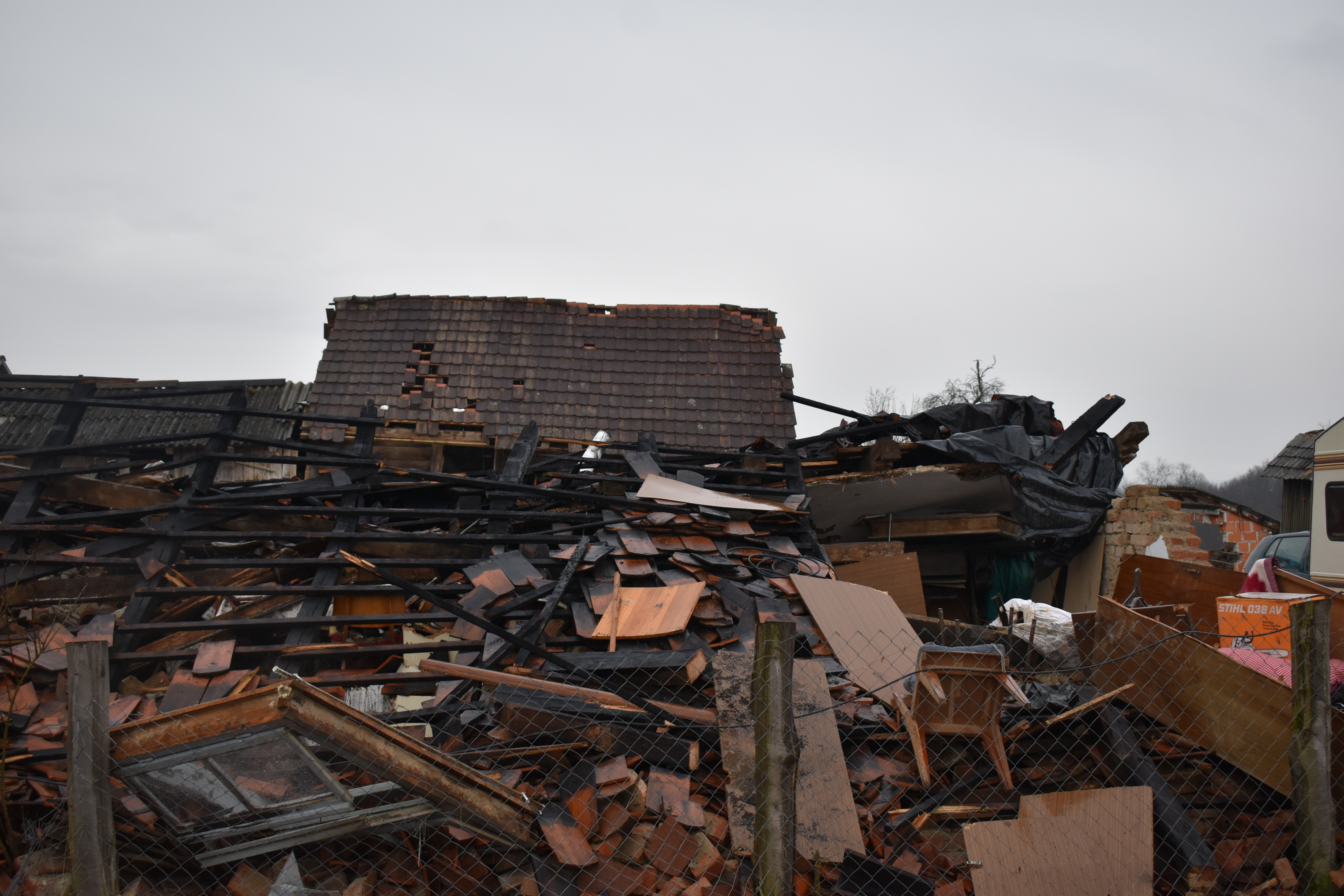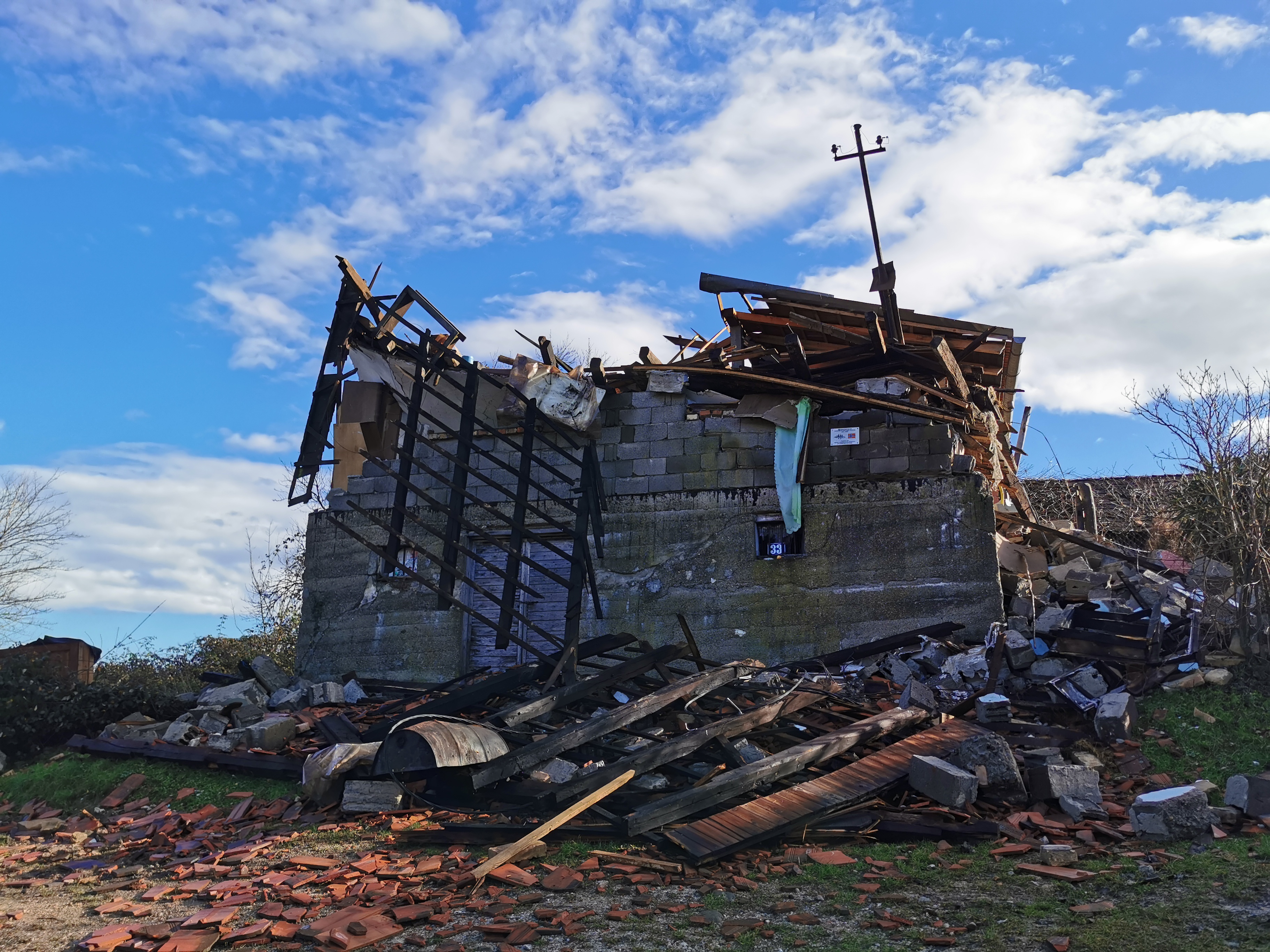After ten days of earthquakes bringing devastation of unimaginable proportions, having been taken out of their shoes and driven out of their homes the people of Banija lost what little they had. The ground does not cease to shake. It demolished roofs, chimneys, walls and facades, exposing 30 years of hypocritical politics of neglect toward the Banija region and its population. Laid bare by the tremors in front of us once again stood the rhetoric of reconstruction. We all remember it well from those times after the war and after the floods. And yet the earthquake experience showed precisely how the “reconstruction” of the late 1990s collapsed like a tower of cards. At the epicenter of the recent earthquake are a series of shameful policies of ethno-nationalism, racism and classism that have pushed people from the Banija region into poverty and social oblivion.
This epicenter rests deep underground and is in political connection with the horrors of unimaginable proportions happening on the other side of the border with Bosnia and Herzegovina, only forty kilometers away, where people on the move – likewise shoeless and homeless – are left to fend for themselves. Other than being left to depend on compassion policies, they are also exposed to the systematic terror of the EU migration regime, which includes the “export” of people on the move from Croatia to Bosnia and Herzegovina with beatings, humiliation and looting. Merely hours after the most devastating earthquake, which took seven lives and scattered tons of tiles, bricks and concrete onto the streets, buses drove people on the move in unknown directions around Bosnia and Herzegovina only to return them, rejected and humiliated, to the very same muddy Lipa camp, which was burnt a few days earlier. For both people of Banija and people on the move rain and snow have brought even more difficult conditions to which the above-mentioned policies, interested only in the production of unwantedness, are completely insensitive. And while donation trucks are pouring towards the epicenter of the earthquake from all over Croatia, neighboring countries and the European Union, we wonder how come such aid isn’t provided to people from the burning camp Lipa? How come, once again some lives are recognized as worth saving and others not?
Despite the importance of providing humanitarian support in crisis, both of these situations are inherently political and require a political response. One such response may be found in the very same epicenter, in the practices of collective solidarity. It is not a savior-spirited, interventionist, short-lived solidarity, based on convenient patriotism, blind to positions of power and the humanitarian industry which profit from such situations. It is not a solidarity that divides according to borders and affiliations. It is a solidarity that stems from responses persistently expressed in practice by people on the move, people in Banija and people who show solidarity with them. It is a lived solidarity, of which the fabric is weaved by political power of change and which radicalizes politics of care and mutual support. It is a time of tectonic changes in understanding and living solidarity, which with its strength from the new and old epicenters of destruction will elevate a politics of radical love and social justice and equality, opposite the injustices of nationalisms and capitalism, neglect, false restorations, container settlements and camps.

Petrinja 
Lipa 
Strezojevo 
Majske Poljane 
Majske Poljane 
OŠ Donja Bačuga 
Zgarište Lipe 
Stražbenica
Transbalkan Solidarity
Co-signers:
Antifašistički vjesnik
Centar za mirovne studije
Centar za podršku i razvoj civilnoga društva “Delfin”
Documenta – Centar za suočavanje s prošlošću
ERIM
fAKTIV
FEMATIK
Građanska inicijativa STOP NASILJU ŠIBENIK
Hollaback! Croatia
HOMO
Hrvatski Savez Stanara – Građana EU
Inicijativa Dobrodošli!
Mensch Raum Land e.V.
Miramida Centar – Regionalne razmjene mirovnih iskustava
NEPOKORNE – grupa za nenasilje i ženska prava
Omladinska udruga Podum (OU Podum)
Pirate Care Network
Platforma za radne uvjete u kulturi Za K.R.U.H.
Platforma za reproduktivnu pravdu
Projekt građanskih prava Sisak
Prostor rodne i medijske kulture ‘K-zona’
Trans Aid
U dobroj vjeri